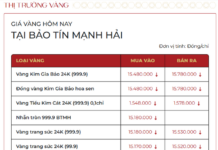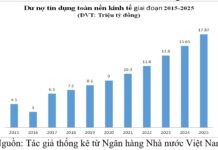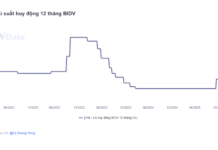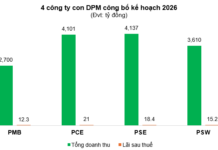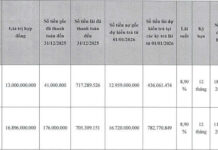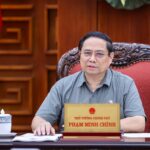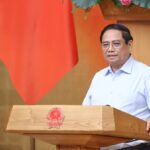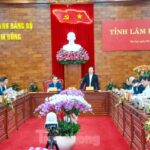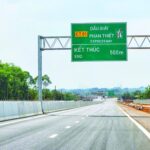The importance of this was emphasized by the Ministry of Labour, Invalids, and Social Affairs at a conference evaluating the implementation of support policies for workers from poor districts seeking employment abroad. This is part of the Sustainable Poverty Reduction Target Program for the 2021-2025 period, targeting 33 poor districts in 14 provinces across the North Central, South Central, Central Highlands, and Mekong Delta regions, held on September 12 in Quang Nam Province.
SUPPORTING EMPLOYMENT AND INCREASING INCOME FOR WORKERS
At the conference, Nguyen Ba Hoan, Deputy Minister of Labour, Invalids, and Social Affairs, affirmed that sending workers abroad is a correct and prudent policy of the Party and the State.
“In addition to accumulating experience, a scientific work style, and professional knowledge and skills, after working abroad, most of whom are young people, the workers have actively contributed to job creation, increased income, and promoted the economic development of their families and localities,” said Mr. Hoan.
According to the Deputy Minister, many families have escaped poverty, not only generating jobs for themselves but also developing production and business activities, creating jobs for the community, and becoming wealthy and well-off, thus making positive contributions to the local socio-economic development.
For workers in poor districts, ethnic minority areas, coastal and island communes, and regions facing economic and social difficulties, going abroad to work is a positive, effective, and rapid channel for sustainable poverty reduction.
Over the years, following the guidelines of the Party and the State, the Ministry of Labour, Invalids, and Social Affairs has advised and developed policies and directed the implementation of programs and activities to promote the deployment of workers abroad, including the National Target Program on Sustainable Poverty Reduction approved by the Prime Minister in 2022.
At the same time, it has also evaluated the implementation of the Sub-project on Supporting Workers from Poor Districts to Work Abroad under the National Target Program on Sustainable Poverty Reduction for the 2021-2025 period…
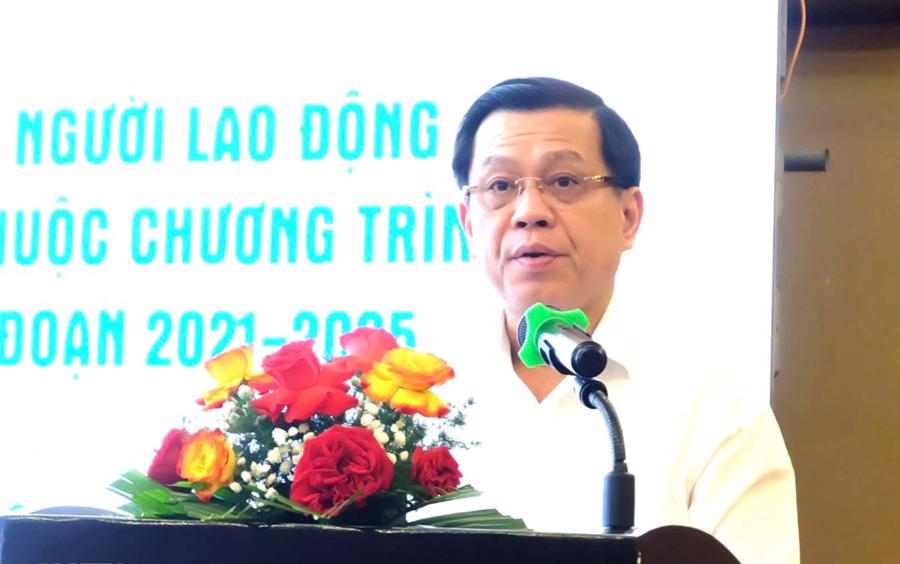
Through discussions, the conference gathered suggestions on orientations, policies, and implementation methods for the program in the following period.
MORE THAN 5,000 WORKERS FROM POOR DISTRICTS SUPPORTED TO WORK ABROAD
Providing additional information on sending workers abroad, Mr. Dang Si Dung, Deputy Director of the Overseas Labor Management Department (under the Ministry of Labour, Invalids, and Social Affairs), said that in 2022, the Prime Minister issued a decision approving the National Target Program on Sustainable Poverty Reduction for 2021-2025.
Sub-project 2 under Project 4 on supporting workers to go abroad aims to train a minimum of 9,500 workers from poor districts and extremely difficult communes in coastal, island, and sea areas. Among them, about 5,700 workers will be sent abroad under contracts (at least 80% of households with members working abroad will escape poverty). The project also aims to support about 1,200 workers in enhancing their foreign language skills before working abroad under agreements between the Vietnamese Government and receiving countries.
According to Mr. Dung, after nearly four years of implementation, as of the end of 2024, the total state budget allocated for Sub-project 2 was VND 189 billion, of which VND 159 billion was allocated to 31 localities for implementation.
So far, more than 3,800 workers from poor districts and extremely difficult communes in coastal, island, and sea areas have been supported with vocational training, and 5,157 workers have been supported with procedures to go abroad under contracts. During the 2021-2023 period, about 118,000 workers and their relatives received counseling on working abroad.
In addition, the policy of providing loans for workers to go abroad under contracts at the Social Policy Bank has contributed to creating jobs for about 120,000 workers, opening up opportunities for ethnic minorities, poor and near-poor households, and those from poor districts. Thus far, the outstanding loans for workers who are policy beneficiaries in poor districts have reached VND 184 billion.
Mr. Dang Si Dung also said that in recent years, the number of Vietnamese workers going abroad has been increasing, mainly in markets with good and stable incomes, such as Japan, South Korea, and Taiwan, accounting for 95% of the total number of workers going abroad annually.
To effectively send workers abroad in the coming time, the leader of the Overseas Labor Management Department suggested continuing to guide localities in implementing support policies for workers belonging to the target group, including credit policies and direct support for exit costs.
Along with this, it is necessary to negotiate with the South Korean side and non-profit organizations to prioritize the selection of workers from poor districts and areas with difficulties to work in South Korea under the Employment Permit System (EPS) program in agriculture, fisheries, and other non-profit labor reception programs.
Moreover, financial support and vocational training are needed to encourage workers from poor districts, especially poor youth and those without jobs, to actively register for working abroad.
Ride the Real Estate Wave: Capitalize on Phu Quoc’s Ascension to a Tier-1 City by 2025
Phú Quốc, a stunning Vietnamese island off the country’s southern coast, has been dubbed the second most beautiful island in the world, after the Maldives. With its pristine beaches, lush landscapes, and vibrant marine life, Phu Quoc boasts immense potential for economic growth, particularly in the tourism and real estate sectors. Aiming to become a Type I Urban Area by 2025, the island’s property market is poised for significant growth and exciting developments.
“Aiming High: Striving for Higher Growth in 2024 and 2025 to Make Up for the Previous Three Years”
At the regular Government meeting for August 2024, held on September 7th, Prime Minister Pham Minh Chinh urged a strive to achieve and exceed all 15 key targets for socio-economic development for 2024. Emphasizing economic growth, the Prime Minister pushed for higher growth rates in 2024 and 2025 to make up for the previous three years of the term.
The Deputy Prime Minister: Investing in the Nha Trang – Da Lat Expressway Must Be a Top Priority
Vice Prime Minister Tran Hong Ha affirmed the importance of the Nha Trang – Dalat expressway project, stating that it is a crucial investment for the region’s economic development. He emphasized that with proper planning and execution, the project has the potential to bring about significant economic growth not only for the respective localities but also for the entire region.







